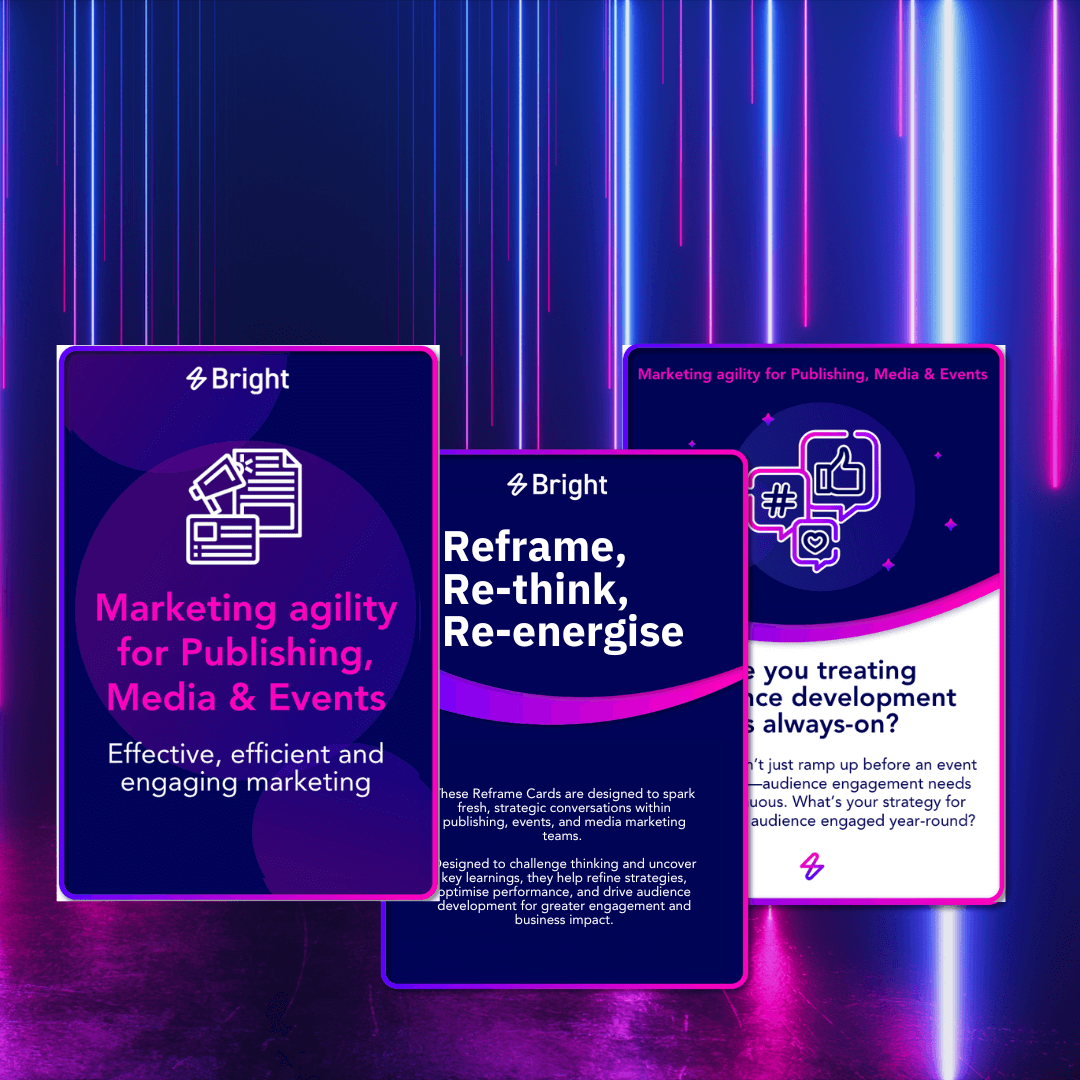The setup
The event’s three weeks out.
You’re juggling six sponsors, four email journeys, and a keynote speaker who still hasn’t confirmed.
You’ve had the same budget sign-off doc open in three tabs.
Everyone’s “in motion” but no one knows what’s actually moving.
The diagnosis
That’s not speed.
That’s chaos disguised as hustle.
You’re reacting fast, working hard, staying busy.
It feels like agility.
But deadlines keep slipping. Approvals stall. Priorities blur.
That’s not agility, it’s survival mode.
The illusion of agility
Most teams don’t resist agile.
They just adopt fragments of it and assume that’s enough.
You might not run standups or retros.
But you’ve got project plans. A kanban board. Weekly team meetings.
You adapt to change. You move fast. You get things over the line.
It looks agile. It even feels agile, because it’s reactive.
But agility isn’t motion. It’s principled adaptation. It’s structure under pressure. It’s progress by design.
You’re not far off. But without principles, fast work is fragile work.
What Agile actually enables
When properly embedded, agile transforms how marketing teams operate:
- Clarity on priorities→ Know what must move this week, and what can wait
- Faster launches, fewer blockers→ Ship version one without endless sign-off loops
- Real-time decision-making→ Adjust strategy based on what the data says today
- Sustainable pace→ Avoid the burnout of always working at the edge of control
Agile gives your team the rhythm it needs to focus, adapt, and win under pressure.
Where Agile Slips
Even with the right tools, things stall:
- Weekly priorities are set but rarely revisited
- Meetings happen, but decisions don’t
- Work is tracked, but progress feels stuck
- Campaigns run, but lessons are skipped
Agile isn’t a label. It’s a living process.
What real agility looks like
In media and event marketing, agile shows up like this:
- Clarity: Everyone knows what’s moving, what’s stuck, and why
- Responsiveness: You pivot on facts, not fear
- Confidence: Teams test, learn, and iterate fast
- Visibility: Tools simplify, not clutter, the path to execution
From reaction to rhythm
To move from hustle to true agility:
- Spot the sticking pointsWhere does work stall? What delays decisions? Clear the friction.
- Shrink the cycleReplace long-range planning with tight sprints focused on one meaningful outcome.
- Empower real autonomyDecentralise decisions. Don’t wait to move, equip your team to act.
Final word
You’re already moving fast. But if your speed isn’t strategic, your progress won’t stick.
Agile isn’t a checklist. It’s how modern teams build clarity in chaos, not just cope with it.
You’ve made the first shift. Now make it sustainable.

















